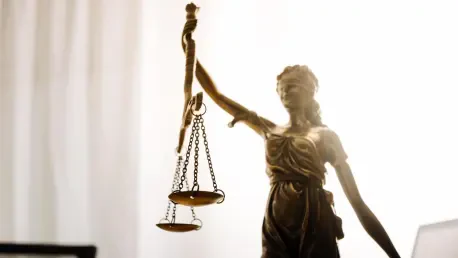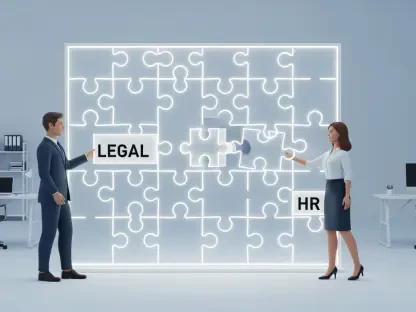In the realm of civil appeals and voting rights law, Desiree Sainthrope stands out as a legal luminary with a keen understanding of the intricacies and implications these cases hold for American democracy. Today, she offers her insights into a pivotal decision by the Eighth Circuit—one that has stirred significant conversation among legal experts and voting rights advocates.
Can you explain the significance of the Eighth Circuit’s departure from previous district court cases concerning Section 2 of the Voting Rights Act and 42 U.S.C. Section 1983?
The Eighth Circuit’s ruling is quite momentous because it essentially narrows the avenues for private enforcement of voting rights violations through Section 1983, a statute previously relied upon for protecting individual rights. By departing from established district court precedents, the court is signaling a shift that may invite more top-down government enforcement rather than grassroots legal challenges initiated by private citizens or groups.
What were the primary arguments put forward by the Turtle Mountain Band of Chippewa Indians and the Spirit Lake Tribe in their case against North Dakota’s Secretary of State?
The tribes argued that the redistricting plan implemented by North Dakota diluted their voting strength—essentially marginalizing Native American voters in a way that contravened the protections afforded under Section 2 of the Voting Rights Act. They contended this was not just a matter of unfair representation, but a violation of their rights to equally participate in the electoral process.
How did the court justify its decision to bar private plaintiffs from using 42 U.S.C. Section 1983 to enforce Section 2 of the Voting Rights Act?
The court focused on statutory interpretation, asserting that Section 2 of the Voting Rights Act did not confer upon private plaintiffs the ability to invoke Section 1983 for enforcement. Essentially, the ruling is grounded on the premise that Congress did not explicitly authorize private action under Section 1983 for enforcing Section 2 rights, thus limiting its utilization to direct enforcement actions by governmental entities.
In your opinion, what impacts might this decision have on future voting rights litigation?
This decision could have profound impacts. It might deter private lawsuits concerning voting rights, placing more pressure on federal entities to enforce these rights and potentially leaving unconstitutional practices unchecked if government bodies fail to act. Additionally, it could lead to an increase in legislative efforts to explicitly expand the mechanisms available for private enforcement of voting rights.
What are some potential alternative legal avenues for plaintiffs seeking to enforce provisions of the Voting Rights Act now that this pathway has been foreclosed?
Plaintiffs might turn to state courts if state constitutions offer broader protections or seek relief through federal administrative complaints. Additionally, there may be efforts to amend the Voting Rights Act itself to explicitly allow private enforcement under Section 1983, though this would require Congressional action.
How does this decision align or conflict with the legislative intent behind the Voting Rights Act of 1965?
It seems to conflict with the intent of the Voting Rights Act, which was designed to eliminate barriers to voting for disenfranchised groups. The Act’s original purpose underscores empowering citizens to challenge voter suppression actively—something this decision now inhibits by restricting Section 1983 as a tool for enforcement.
Given the Eighth Circuit’s ruling, what are the immediate challenges faced by the individuals and tribes involved in this case?
They face the daunting task of finding alternative legal strategies that can effectively address their grievances. With the restriction on private action, coordinating with rights advocacy groups or seeking legislative fixes becomes essential. Additionally, raising awareness and garnering public support to pressure government entities to act is more critical than ever.
Could you discuss the relevance of this case within the broader context of civil appeals concerning voting rights in the United States?
It highlights a pivotal moment in the judicial approach to voting rights enforcement. As civil appeals often act as precedents influencing other jurisdictions, this ruling could catalyze similar interpretations countrywide, affecting the landscape of voting rights law and potentially prompting legal and legislative re-evaluations across the nation.
How might this ruling influence the actions of other circuits and courts across the country regarding voting rights?
Other circuits may feel encouraged to reassess their positions on private enforcement of Section 2 or might deliberately counter the Eighth Circuit to preserve existing precedents that favor broader access to legal remedies for voting rights issues. This dual approach could lead to a patchwork of legal interpretations across the nation, further complicating voter rights litigation.
What role do you see for advocacy groups and policymakers in responding to this legal development?
Advocacy groups will likely play a crucial role in mobilizing public sentiment, lobbying for legislative changes, and supporting strategic litigation efforts that aim to restore or expand voting rights protections. Policymakers might feel prompted to introduce bills that clearly articulate the ability for private enforcement, providing a legislative fix to this judicial interpretation.
How does this decision affect Native American communities specifically, considering the context of the Turtle Mountain Band of Chippewa Indians and Spirit Lake Tribe’s allegations?
Native American communities already face unique challenges regarding representation and access to voting. This decision exacerbates those difficulties by potentially allowing state-level actions that might dilute their influence without a straightforward path for legal recourse. It underscores the need for focused advocacy and policy efforts to protect tribal voting rights.
What insights can you share about the process leading to the Eighth Circuit’s decision in Turtle Mountain Band of Chippewa Indians v. Howe?
The decision process likely involved comprehensive scrutiny of legislative language and historical enforcement patterns of voting rights laws. The court seemed intent on defining the boundaries of private litigation based on statutory interpretation, likely informed by an undercurrent of minimizing judicial overreach in political and electoral matters.
What are experts and commentators saying about the potential repercussions of this decision on American electoral processes?
There’s a growing concern that this decision could embolden states to pass redistricting and voting laws that sidestep federal protections, knowing that enforcement avenues can be limited. Many commentators warn that this judicial restraint could weaken the VRA’s foundational goals, call for increased vigilance and advocacy from both legal experts and citizens alike.
What is your forecast for voting rights, given this recent decision?
If the Eighth Circuit’s interpretation proliferates, we might see a shift towards stronger federal government involvement in enforcing voting rights since private channels are truncated. This could also galvanize legislative reform discussions aimed at restoring the efficacy of these critical civil rights protections, ultimately fostering a renewed commitment to transparent and fair electoral processes.









